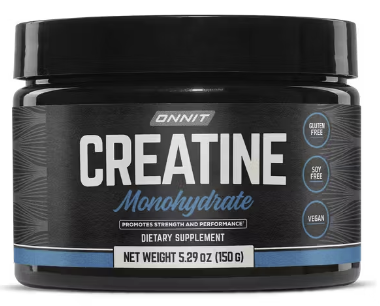It is no secret that our diets significantly affect our health. Eating a balanced diet is essential for reducing the risk of developing severe health issues such as clogged arteries. Clogged arteries can lead to serious health issues, such as stroke and heart attack. For this reason, it is essential to be mindful of our dietary choices. The right foods can help reduce the risk of clogged arteries and keep your heart healthy.
This article will discuss foods that can help prevent clogged arteries. We will discuss these foods, how they can help, and which ones you should add to your diet. Additionally, we will discuss how to incorporate these foods into your diet to maximize their potential benefits. By the end of this article, you will be well-equipped to make healthier dietary choices and reduce your risk of developing clogged arteries.
Leafy Greens
Leafy greens are a superfood that should be on everyone’s plate! They offer various health benefits, including essential vitamins and minerals and aiding digestion. Eating leafy greens can also help reduce your risk of developing certain diseases and chronic conditions. To get the most out of leafy greens, you should incorporate them into your diet in various ways. You can add them to salads, stir-fries, smoothies, and soups. You can also juice them for a tasty and nutritious beverage.
Benefits of Eating Leafy Greens
Let’s explore the benefits of eating leafy greens! Eating leafy greens is one of the healthiest diet habits one can adopt. Eating these nutrient-dense greens can be a game-changer for your health. Not only are leafy greens low in calories and fiber, but they also contain a wide range of vitamins and minerals, including vitamins A, C, and K. Eating leafy greens can help lower your risk of heart disease, stroke, and other chronic diseases. It may even help reduce your risk of certain cancers.
Leafy greens can also help keep your skin healthy and glowing, help you maintain a healthy weight, and keep your bones strong. Eating leafy greens can also help increase your energy levels and mood. With all these fantastic benefits, it’s no wonder that leafy greens are a staple in many diets. Eating leafy greens is a great way to get essential vitamins and minerals into your diet and ensure your body gets all the nutrients it needs.
Vitamin K2 Mk-4 and Mk-7
So, let’s take it one step further and examine the specific health benefits of Vitamin K2 MK-4 and MK-7, two forms of Vitamin K found in leafy greens. When it comes to Vitamin K2, it is essential for healthy bones, cardiovascular and brain health, and in preventing age-related diseases. Studies have found that Vitamin K2 helps reduce arterial stiffness and calcification, helps prevent bone fractures, and even reduces the risk of prostate, breast, and liver cancer. On top of that, Vitamin K2 MK-4 specifically has also been found to improve the efficacy of Vitamin D, which is essential for strong bones and a healthy immune system.
Vitamin K2 MK-7 is found primarily in natto, a traditional Japanese dish of fermented soybeans. It is different from K2 MK-4 in that it is a longer-lasting form of the vitamin. Studies have found that it can improve bone health, reduce the risk of cardiovascular disease, and even reduce inflammation. It can also be beneficial for people who are at risk for developing osteoporosis and Alzheimer’s.
Oatmeal
Oatmeal is a healthy, versatile, and delicious breakfast option. It has numerous health benefits, such as reducing cholesterol levels, aiding weight loss, and providing essential nutrients. Additionally, oatmeal is an excellent source of heart-healthy fiber. There are many ways to enjoy oatmeal, from fresh fruits and nuts to indulgent overnight oats. As a result, it is easy to find the perfect oatmeal recipe for any palate.
When preparing oatmeal, following the instructions on the packaging is essential. For a tasty oatmeal option, use rolled oats rather than instant oats.
Health Benefits of Eating Oatmeal
As a delicious and heart-healthy breakfast option, oatmeal has become a staple in many households. But did you know that it also has numerous other health benefits? Let’s explore the health benefits of eating oatmeal.
Oatmeal is a great source of fiber, which is essential for digestive health. Eating oatmeal can help regulate your digestive system and provide essential vitamins and minerals. It can also help to reduce cholesterol levels, which is important for maintaining a healthy heart. Additionally, it can help to stabilize your blood sugar levels, which is important for those who suffer from diabetes or prediabetes.
Oatmeal is also an excellent source of protein, which can help to build muscle and provide your body with the energy it needs to stay healthy. It also contains essential vitamins and minerals, including iron, magnesium, potassium, and zinc. These nutrients can help to strengthen your immune system and keep your cells healthy.
Oatmeal is also a great source of antioxidants, which can help fight free radicals and protect your body from damage. The antioxidants in oatmeal can help reduce inflammation and protect your cells from damage. This can have a positive effect on your overall health and well-being.
Nuts and Seeds
Eating Nuts and Seeds is one of the best health decisions you can make. They are packed with essential nutrients and low-calorie and high in fiber, making them an excellent snack choice. There are various nuts and seeds to enjoy, such as Pistachios, Flax Seeds, and Chia Seeds, each offering unique health benefits.
Pistachios are heart-healthy nuts that are low in calories and high in protein. They are also a great source of unsaturated fats, fiber, and antioxidants.
Benefits of Eating Nuts and Seeds
Oatmeal is a great way to start the day, but you can also add the crunch of nuts and seeds to your morning routine for a nutritious and delicious breakfast. Benefits of Eating Nuts and Seeds Eating nuts and seeds provide a range of health benefits. They are a great source of healthy fats, vitamins, minerals, and plant-based protein. They contain healthy monounsaturated and polyunsaturated fats and omega-3 fatty acids, which can help reduce inflammation and the risk of chronic diseases.
In addition, they are a good source of fiber, which can help regulate digestion and lower cholesterol. Eating nuts and seeds can also help to improve energy levels, as they are a great source of nutrients like vitamin E, magnesium, and zinc, which help to boost energy levels. *In short, the benefits of eating nuts and seeds are clear – they are packed with nutrition and can help to improve your health.
Berries
Berries are incredibly nutritious and delicious, and eating them regularly can provide many health benefits. Eating various berries can help boost your overall health and provide essential vitamins, minerals, and antioxidants. There are many different types of berries, including strawberries, blueberries, raspberries, blackberries, and cranberries. Each type of berry has unique nutritional benefits and can be prepared in various ways.
For example, Strawberries are a great Vitamin C source, which helps protect cells from damage, promote heart health, and support the immune system.
Health Benefits of Eating Berries
A rush of antioxidants, vitamins, and minerals – that’s what you get when you bite into a juicy berry! Berries are an incredibly nutritious food that can offer a range of health benefits. From boosting immunity to aiding digestion, there are countless reasons why you should be incorporating more berries into your diet.
The antioxidants in berries reduce inflammation, which can help protect against various diseases. They contain a polyphenol known as anthocyanins, which can help protect against chronic illnesses like heart disease and cancer. Berries are also high in fiber, which can help improve digestion and keep you feeling full for longer.
Berries are also packed with essential vitamins and minerals, such as vitamin C and magnesium, to help boost immunity. Vitamin C helps fight off infections and strengthen the body’s natural defenses, while magnesium helps regulate blood sugar levels and reduce stress.
Incorporating more berries into your diet is an easy way to get a wide range of health benefits. There are countless varieties of berries to choose from, including strawberries, blueberries, raspberries, blackberries, and cranberries.
Fatty Fish
Eating fatty fish regularly offers numerous health benefits. Fish is a great source of lean protein and is rich in essential vitamins and minerals. Additionally, fatty fish like salmon, anchovies, herring, mackerel, and sardines are full of omega-3 fatty acids, which can help lower cholesterol and reduce the risk of heart disease.
There are many different types of fatty fish to enjoy. Salmon, anchovies, herring, mackerel, and sardines are all tasty options, each with its distinct flavor.
Health Benefits of Eating Fish
“But what about fatty fish?“ It turns out that fatty fish have health benefits that are just as impressive as those of berries. Eating fatty fish can provide various health benefits, such as reducing inflammation and supporting cardiovascular health.
Fatty fish is a term used to describe fish naturally high in healthy fats, such as salmon, mackerel, herring, and sardines. These fish are full of vital nutrients like omega-3 fatty acids, essential for the body’s functioning. Omega-3 fatty acids reduce inflammation, improve cognitive functioning, and reduce the risk of heart disease and stroke.
Eating fatty fish regularly can also benefit your skin. Omega-3 fatty acids help to reduce inflammation and redness, as well as boost skin hydration. They can also help to reduce the appearance of wrinkles and discoloration.
Additionally, fatty fish can help to boost your immune system. Omega-3 fatty acids can help reduce inflammation, improving your overall health and well-being. Eating fatty fish regularly can help to protect you from diseases such as colds and flu.
Including fatty fish in your diet can be easy and delicious!
When preparing fatty fish, keeping the skin on is essential as it helps retain more nutrients.
Olive Oil
Olive oil is a beneficial part of a healthy diet, promoting heart health, lowering cholesterol, and regulating blood pressure. It’s also incredibly versatile, offering countless different ways to enjoy it. But what are the benefits of regularly incorporating olive oil into your diet?
The primary benefit of olive oil is its high levels of healthy fats, which are essential to a balanced diet. Olive oil is packed with monounsaturated fatty acids, which can help reduce the risk of heart disease, stroke, and certain types of cancer.
Benefits of Eating Olive Oil
After discussing the potential health benefits of fatty fish, let’s focus on another powerhouse of healthy fats: olive oil. Olive oil is one of the most beloved foods in the Mediterranean diet, and for good reason. There are many benefits of eating olive oil that make it a must-have in the kitchen.
For starters, olive oil is high in healthy monounsaturated and polyunsaturated fats, which are excellent for heart health and weight management. Olive oil has been shown to help reduce harmful cholesterol levels and raise good cholesterol levels, which can lead to improved blood pressure. Studies have also shown that olive oil can help reduce the risk of stroke and heart attack.
Olive oil is also a great source of antioxidants, essential for fighting free radicals and keeping the body healthy. Additionally, olive oil is incredibly versatile and can be used in various recipes, from salads and pasta dishes to grilled meats.
If you’re looking to get the most out of olive oil, there are a few different ways to enjoy it. First, it can be used in its purest form as a dip or dressing for salads or cooked vegetables. It’s also an excellent addition to marinades and sauces.
Garlic
Garlic is an incredibly versatile and nutritious food that can be enjoyed in many ways. Not only is it incredibly flavorful, but it can also help keep our bodies healthy in numerous ways. Eating garlic regularly can reduce the risk of heart disease by preventing plaque build-up in the arteries, and it can also help lower cholesterol levels. Furthermore, garlic contains essential nutrients, such as vitamin C, B-6, iron, and manganese.
Health Benefits of Eating Garlic
No other food offers tasty flavors and health benefits quite like garlic! From lowering cholesterol to improving immunity and reducing heart disease risk, garlic is a powerful ingredient that should be included in everyone’s diet. Let’s explore the amazing health advantages that garlic has to offer.
Garlic has long been used for its medicinal properties, and it’s no wonder why. Studies have shown that the active compounds in garlic can provide a range of health benefits, including improved immunity, lower cholesterol levels, and reduced risk of heart disease.
Garlic contains vitamins and minerals, including vitamins C, B6, manganese, and selenium. In addition, it contains a compound called allicin, which is believed to be responsible for many of garlic’s health benefits. Allicin has been shown to have antioxidant, anti-inflammatory, and antibacterial effects.
One of garlic’s most notable health benefits is its ability to lower cholesterol levels. Studies have shown garlic can reduce total cholesterol and LDL (bad) cholesterol levels while increasing HDL (good) cholesterol levels. This can help to reduce the risk of heart disease and stroke.
Garlic is also believed to have anti-cancer properties.
Dark Chocolate
Dark Chocolate is known to be beneficial for overall health. Eating dark chocolate can have a positive impact on your body. It has antioxidants, potassium, and magnesium, all of which help to improve health. Additionally, dark chocolate can help reduce cholesterol and blood pressure and improve heart health.
Here are some benefits of eating dark chocolate: reducing cholesterol and improving heart health and blood pressure reduction. Additionally, there are different ways to enjoy dark chocolate – such as in bars, chips, and baking. No matter the form, dark chocolate can provide a range of benefits to your health.
Benefits of Eating Dark Chocolate
Moving from the comforting and familiar taste of garlic to dark chocolate’s delectable and indulgent flavor, it’s no wonder why this treat is often considered a luxury. Not only does it tantalize the taste buds, but dark chocolate also has many health benefits. One of the major benefits of eating dark chocolate is its ability to help reduce cholesterol levels, making it an excellent choice for those looking to improve their heart health.
Dark chocolate’s antioxidant-rich properties can help improve your heart’s overall health. Dark chocolate contains many of the same beneficial antioxidants found in fruits and vegetables, such as polyphenols, flavanols, and catechins, which have been linked to lower LDL cholesterol levels and improved heart health. Additionally, dark chocolate can help reduce high blood pressure, as it contains magnesium, which is known to relax blood vessels and improve circulation.
But the benefits of dark chocolate don’t stop there; it can also help boost your mood and mental well-being. Studies have shown that dark chocolate can help reduce stress levels and improve your mood, making it a great snack for those looking to improve their mental wellbeing.
Conclusion
In conclusion, eating the right foods can help prevent clogged arteries and improve your overall health. Eating foods like leafy greens, oatmeal, nuts and seeds, berries, fatty fish, olive oil, garlic, and dark chocolate can help reduce your chances of developing cardiovascular disease. Making small changes to your diet, like adding these foods to your meals, can have a big impact on your health. Eating these foods can help you live a healthier life and reduce your risk of developing various health problems. So don’t hesitate to make these small changes to your diet today. These dietary changes can help lower your risk of developing clogged arteries and other serious health issues.

The Negative Affects of Alcohol on Exercise Recovery
Exercise has long been known to benefit your health, but did you know it can be even more beneficial when combined with a healthy lifestyle?

Plant Versus Animal Protein
Protein is an essential macronutrient for the human body; it helps in building and repairing muscles, tissues, and organs. We obtain proteins from a variety

Creatine Supplements for Athletes over 40
As athletes over 40, keeping up with the younger competition can be difficult. Creatine supplements can be a great way to help you stay ahead
follow
Error: No feed with the ID 2 found.
Please go to the Instagram Feed settings page to create a feed.

